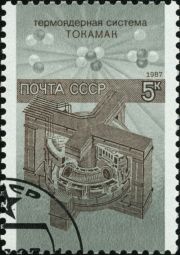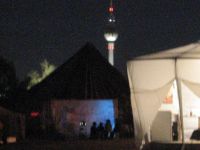Beautiful future projects
Science fiction was a common culture strategy to talk about the future - everyone knew it would not happen so it was easy to imagine a different world. But in my youth in the 1960s and 1970s we were also experiencing projects to happen that the generations before had considered fiction: Landing on the moon, nuclear energy, later in the 1980s the computer and internet revolution.
There were two big projects that we were told would happen soon, and thus would carry the spirit of a future technology on. Only now, considering the achievements of my life and the world around me, and considering the history of futurism as a universal history of future's fate, I sadly see these projects did not happen: Fusion energy and Men on Mars.
So starting in 2004, as an artist I stepped into the scientific communities around these projects - and found that they are hampered by some kind of universal spirit in human beings, communities and the society. This spirit leads to shy away from changes, hesitating to really make a step in a new world. It shows also that the futurist impulse by Marinetti is not just some historic idea but that it touches universal questions of human development.
Let us take these projects as symbols to challenge and overcome the spirt of hesitation, beyond their practical and scientific implications:
Fusion energy
 Shortly after the developement of the hydrogen bomb scientists began to think about ways to use this powerful technique for peaceful application as an energy source. Already in 1952 the russian physicists Andrei Sacharow and Igor Tamm developed the Tokamak design for a fusion reactor: The hot plasma of the hydrogen fusion gas is kept in a torus ring by strong magnetic fields so that they will not vaporize the casing. Serveral experiments and prototypes have prooved this concept to work - fusion energy is not about science but just about engineering challenges.
Shortly after the developement of the hydrogen bomb scientists began to think about ways to use this powerful technique for peaceful application as an energy source. Already in 1952 the russian physicists Andrei Sacharow and Igor Tamm developed the Tokamak design for a fusion reactor: The hot plasma of the hydrogen fusion gas is kept in a torus ring by strong magnetic fields so that they will not vaporize the casing. Serveral experiments and prototypes have prooved this concept to work - fusion energy is not about science but just about engineering challenges.
Fusion reactors would still use and produce radioactive materials as the current nuclear reactors - but several magnitudes smaller. They were also safer than 'fission' reactors - the slightest disturbance will immediatly stop the fusion process, instead of letting it 'melt through' as we saw in Chernobyl. No nuclear waste and reprocessing industry, no terrorist threat, no global heating due to carbon-dioxide, no war for oil, and fast electric vehicles.
In my youth we were told that fusion energy was "soon to come". The decades passed along and it - did not happen. In 1985, 33 years after the tokamak invention, Michail Gorbatchov joined a proposal for an international developement of a 'breakthrough' fusion reactor, one that could reliably produce energy, as a demonstration for a new type of energy. Now we read that for the project called ITER the construction just began - in 2009. That's another 24 years after 1985.
Could it be something is going wrong here?
Men on Mars
 After the first man on the moon in 1969 we were told that the next step to interplanetary missions would soon follow. The enigneers involved in the Apollo program had already concrete plans for going to Mars. Other than travels on earth the longer distance to Mars compared to Moon does not mean a much stronger and bigger rocket is needed for the actual movement: Vacuum in space means there is no friction, so once accelerated a rocket will fly without further energy consumption. The journey would take six month, which at the Apollo time meant several unknown variables for the health of the astronauts or cosmonauts. The russian Mir station as well as the ISS have later yielded this data and the techniques to maintain humans in space for longer periods are now well proven.
After the first man on the moon in 1969 we were told that the next step to interplanetary missions would soon follow. The enigneers involved in the Apollo program had already concrete plans for going to Mars. Other than travels on earth the longer distance to Mars compared to Moon does not mean a much stronger and bigger rocket is needed for the actual movement: Vacuum in space means there is no friction, so once accelerated a rocket will fly without further energy consumption. The journey would take six month, which at the Apollo time meant several unknown variables for the health of the astronauts or cosmonauts. The russian Mir station as well as the ISS have later yielded this data and the techniques to maintain humans in space for longer periods are now well proven.
The Mars mission will provide less direct benefit compared to fusion energy, but then even more it serves as a demonstration that "We are at the beginning of history, not at it's end":
It will be costly, but compared to other symbolic projects - like the US-Iraq war - or failed economic projects - like the international banking system - is must be considered cheap and fruitful.
In 2003 I joined the german chapter of the Mars Society and, in order to illustrate to them the priority to bring the Mars quest into public culture, two projects comprising fine arts, music and edutainment were realized in Berlin and Cologne:
